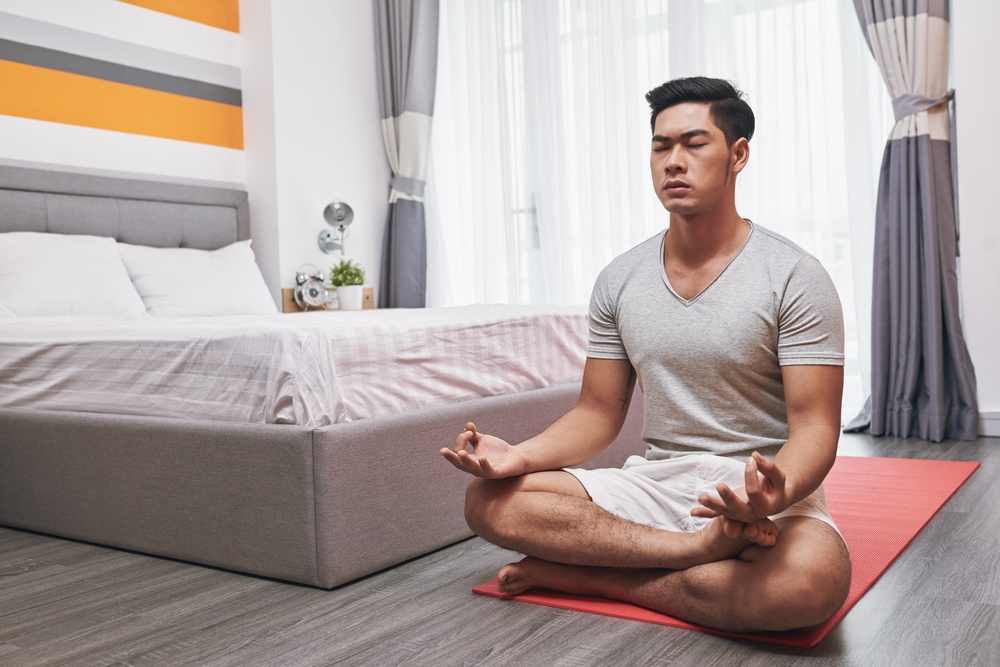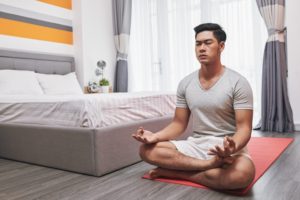Meditation and Sleep
IF YOU’RE NOT getting enough sleep, you could be at risk for serious health problems, including diabetes, hypertension and depression. Severe sleep insufficiency can even shorten your life, says the Centers for Disease Control and Prevention.
If you’re someone who has trouble relaxing enough to get the sleep you need, there are techniques you can try that will help both your body and your mind to unwind, chief among them is meditation.
What is meditation?
Meditation goes back thousands of years as an ancient Hindu tradition. Literally, the word is formed from the Latin root “Meditatum,” meaning “to ponder.” When you meditate, you learn how to control your thoughts and to channel them into positivity.
Meditation is a mental exercise that helps your inner focus. By focusing on your breathing and your thoughts, you can use meditation to help improve nearly every aspect of your life, including sleep. Meditation helps you develop a sense of mindfulness — being present in the moment instead of worrying about the past or future. And once you learn mindfulness, it’s an easy leap to initiating the relaxation response.
Meditation and the relaxation response
Reminding yourself to relax may sound easy, but if you’re someone who has trouble living in the moment and who is constantly thinking about what’s happening tomorrow or a week from tomorrow, you may need help and guidance learning how to shut it all down at the end of the day.
This is where practicing the relaxation response can, quite literally, save your life. The relaxation response is simply a term that was coined to describe the feeling that comes from making a conscious effort to clear your mind and invoke relaxation. Once you master it, it’s possible to use this technique to help you excel in all areas of your life, including your daily fight against insomnia.
Practice mindfulness before sleep
Sleep relaxation may have eluded you up to this point, but if you combine a healthy, balanced lifestyle with daily meditation, you may find you have less trouble getting to sleep at night. Eating well is important, so is getting enough daily exercise. Possibly the best way you can help yourself sleep better, however, lies in finding ways to turn the negative thought process off in those moments after climbing into bed. Be mindful of where you are. Be mindful of how comfortable you’ve become, and use learned techniques to help you effectively “turn on” your relaxation response.
Improving the quality of your sleep
Learning to unwind and let go is a big part of getting to sleep on time every night, but your mattress and surroundings are important too.
-
- Keep your bedroom streamlined and uncluttered.
-
- Use a sound machine or a fragrance diffuser to help set a restful atmosphere.
-
- Make sure your mattress and bedding are comfortable and well suited to your body and lifestyle.
-
- Practice the techniques and methods of meditation to help you calm down and let go.
Even if sleep is something that fights you every single night, increasing your comfort and learning how to pay attention to just how comfortable you are will both go a long way toward helping you drift off early enough to get to work on time tomorrow.




